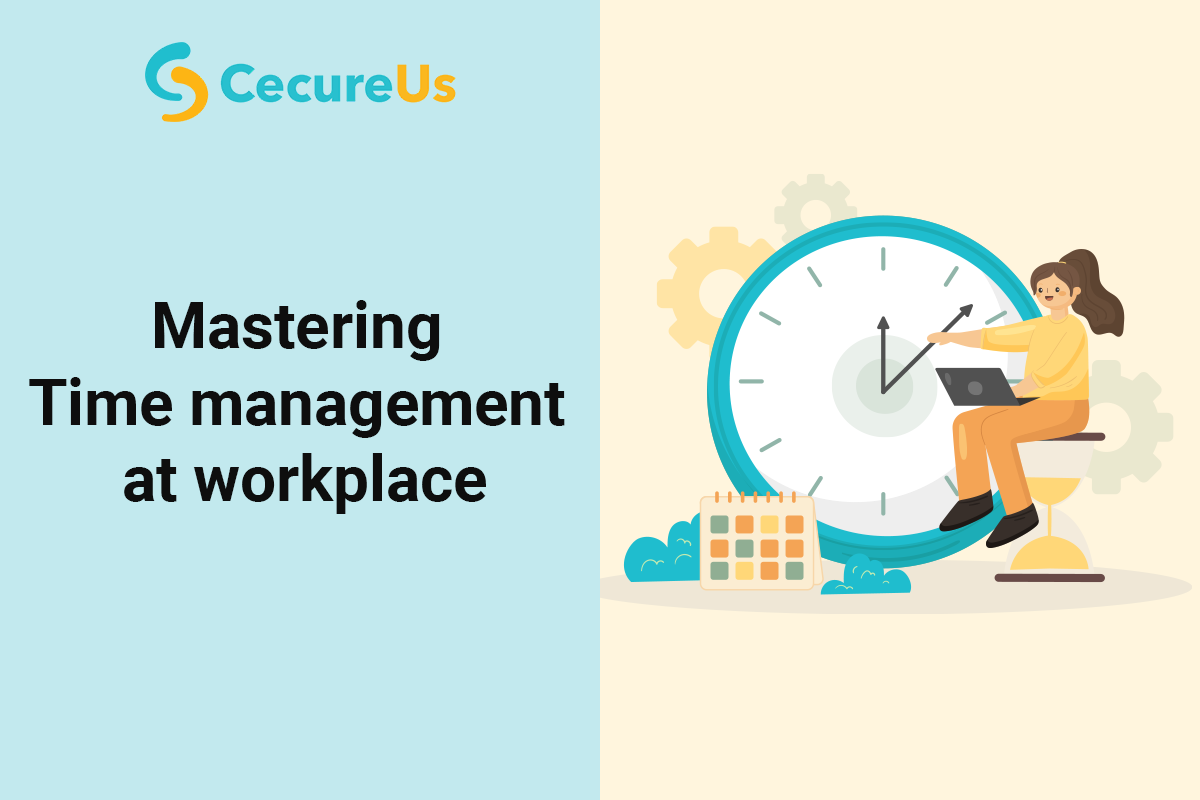
Thomas Edison says “Time is the only capital that any human being has, and the only thing he can’t afford to lose”. This makes us realize the importance of time management especially in the workplace. We all feel a lack of time and complain about unfinished tasks. It is surprising to know that 82% of people don’t have a dedicated time management system. This reveals great potential time management has to offer for. Is time management a hack, to use as a quick fix? Time management is a skill, anyone can master. Every individual is unique in their way of approaching the task at the workplace. Let’s define Time management first, before studying it.
What is Time management?
Time management is the process of planning, and exercising conscious control of time. So, the key is to be smarter than harder and use the given time to enhance productivity.
Managing time at the workplace seems challenging. The good news is it can be learnt and mastered with ease. If you pay closer attention to these three categories of time management, you will have a knack for getting it. As each individual is unique, I have segregated three-time differentials for easy understanding. They are:
- Time Drainers
- Time Savers and
- Time Conservators
Time drainers
As the name suggests, time drainers suck your valuable time leading to delayed work. It can also lead to stress and inefficiency. The result is, affecting the other two differentials of time management.
Hence it is the need of the hour to foremost address time drainers and avoid them.
Here’s the list of activities that sap your valuable time in the workplace.
- Avoid distractions such as unproductive thoughts, replying to irrelevant messages, conversations and activities. Forbes article reports that employees spend 21% of their work hours on entertainment, social media and news. That’s the huge chunk of time wasted.
- Remember you are going to end late if you are going to start late. It is wise to plan the activities and jot in a “to-do list”.
- We believe that multitasking cuts down time consumption. But the reverse is true. Since multitasking not only cuts efficiency but can be dangerous. According to APA, mental juggling involves “switching costs” that slash productivity. So, it’s better to divert your attention to focusing on one task at a time.
- Are we procrastinating tasks and making excuses to do them later? Why do we procrastinate on important tasks? Sometimes we need more motivation to finish some difficult tasks or we may need to learn how to do it. Check out, is it the lack of motivation or something else? Take the help of the seniors for an extra hand, learning new skills or say “NO”, in case of an increase in workload.
- Employees worldwide report feelings of anger, worry and sadness. They are under constant stress throughout the day in the workplace. Anxiety levels soar as they get closer to the deadline of completing the task. This leads to stress and results in poor time management. It affects the mental health and morale of the employee.
Cope stress with better mental health strategies, Early planning and Accept the uncontrollable. This will keep you in positive mental health and better time management.
Time savers
Sorting of time drainers might have brought some clarity on how our time gets wasted. We are almost halfway through the process of applying time management skills. Let’s look into the list of time savers
- List down daily tasks and arrange them in the order of priority. This will result in a proper flow of uninterrupted work. It provides better quality of work and increased efficiency.
- Next break big tasks into more manageable to-do lists. It will lead to more focus and attention on each task. McKinsey analysis suggests that an average worker spends 28% of his time reading and answering emails. Thus, creating separate chunks of time for answering emails, attending phone calls and filing is necessary.
- Keep things organized. Declutter your desk, screen etc. Automate repetitive processes.
- Set realistic timelines for each task. You can use Pomodoro Technique to check off your to-do list.
Time Conservators
Let’s not forget some of the time conservators mentioned below:
- Take short breaks to reduce stress and burnout. Research suggests that regular short breaks between work are necessary. It increases productivity, enhances mental well-being, memory and decision-making.
- Use time management tools like Slack, Google Calendar, Canva and Lucid Chart.
- Use the EisenHower matrix by Stephen Covey.
We all have 24/7, 365 days a year. Let’s manage our time instead of letting it manage us.
If you are an organization looking to implement EAP support, write to us at connect@cecureus.com. Visit our portal to book an appointment if you are concerned about yourself or a loved one. For more blogs, vlogs, workshop announcements, and event updates, visit our official website , www.cecureus.com.




